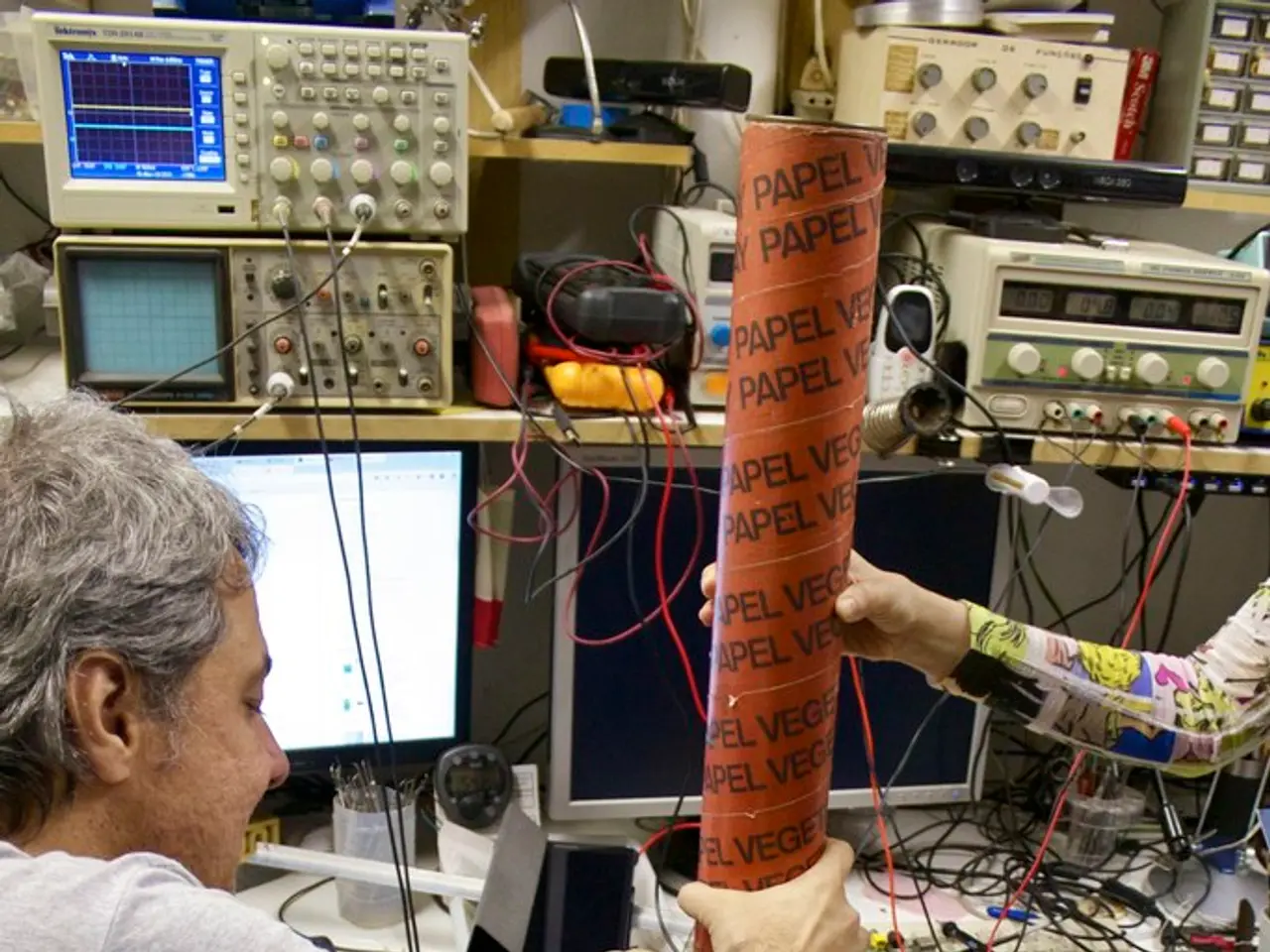Deep Focus: Its Definition and Implementation Strategies
In the modern world, where distractions abound, finding focus and efficiency has become a challenge. Enter Cal Newport's Deep Work method, a productivity framework designed to help individuals achieve more impactful and meaningful work by cultivating the discipline and environment necessary for sustained deep focus.
The core principles of Deep Work focus on maximizing productivity by dedicating uninterrupted, distraction-free time to cognitively demanding tasks, thereby enhancing focus, quality of work, and personal satisfaction.
Prioritize Deep Work
The first key principle is to prioritize deep work over shallow tasks. This means systematically scheduling long, uninterrupted periods of focus to engage fully in meaningful work that produces high-value results.
Choose a Suitable Deep Work Style
Newport suggests that individuals should choose a deep work style that fits their lifestyle. There are four main approaches: monastic, bimodal, rhythmic, and journalistic. Each approach caters to different schedules and levels of control.
Use Time Blocking & Rituals
Newport advocates for structured time blocks, often 90 minutes or more, to align with the brain's ultradian rhythms for optimal concentration without burnout. Each session should have a clear goal, minimized distractions, and a mental or physical ritual to signal the start of focused work. Breaks following these sessions are crucial for mental reset and sustained productivity.
Minimize Distractions and Shallow Work
Reducing digital interruptions such as social media, emails, and multitasking is essential to preserve cognitive capacity for deep work.
Focus on Quality & Sustainability
Newport emphasizes focusing on a small number of important projects deeply rather than spreading attention thinly, aligning work habits with natural energy flows to avoid burnout and maintain high performance long term.
Together, these principles form an integrated productivity framework that helps individuals achieve more impactful and meaningful work by cultivating the discipline and environment necessary for sustained deep focus.
In summary:
- Prioritize deep over shallow: Dedicate large, uninterrupted time to cognitively demanding tasks.
- Choose suitable deep work style: Monastic, bimodal, rhythmic, or journalistic based on your schedule and control.
- Use time blocking & rituals: 90-minute (or longer) focus blocks with clear goals, no distractions, and start rituals.
- Minimize distractions: Disconnect from social media, emails, multitasking.
- Focus on quality & sustainability: Work on fewer projects deeply, match workflow to energy rhythms to prevent burnout.
These core principles form the foundation of Cal Newport’s Deep Work method for productivity. While methods like the Pomodoro Technique may contradict Deep Work by focusing on shorter periods of work, embracing Deep Work can lead to increased productivity and personal satisfaction.
Embracing Deep Work involves allowing time to recharge, breaking up deep work sessions, and fighting the urge to procrastinate. Tools such as Hubstaff, Google Calendar, and Forest can help enhance deep work by providing time tracking features, real-time activity scores, and gamification of the work process.
Deep work is particularly beneficial for students in academia, especially in computer science, during tasks such as writing papers, studying, reading, coding, designing, taking exams, and completing online coursework. Creating a deep work schedule is essential for planning deep work sessions, balancing deep and shallow work, and knocking out items on your to-do list.
Common obstacles to deep work include burnout, lack of availability, and procrastination. Planning for deep work sessions involves identifying the most productive hours and clearing the schedule of meetings, shallow work, or distractions during those periods. Rule 3: Quit social media encourages limiting social media usage during deep work sessions, while Rule 4: Drain the shallows focuses on minimizing lesser tasks that clutter your to-do list.
In essence, Deep Work is a mentality that prioritizes absolute focus to eliminate distractions and help the brain reach its full potential. By adopting this mindset and implementing the principles of Deep Work, individuals can transform their work habits and achieve greater productivity and success.
- To enhance productivity and personal growth, consider adopting the Hubstaff tool, which offers time tracking features to help individuals stay focused during deep work sessions and maintain a productive work-life balance.
- To further optimize the deep work process, utilize education-and-self-development resources that provide insights into effective techniques for standups, such as those found in blogs or online courses, to develop stronger communication skills and collaborative habits.
- By minimizing shallow work, such as checking emails or browsing social media, and dedicating time for deep work tasks, individuals can foster personal-growth opportunities and contribute more significantly to their education-and-self-development endeavors.




